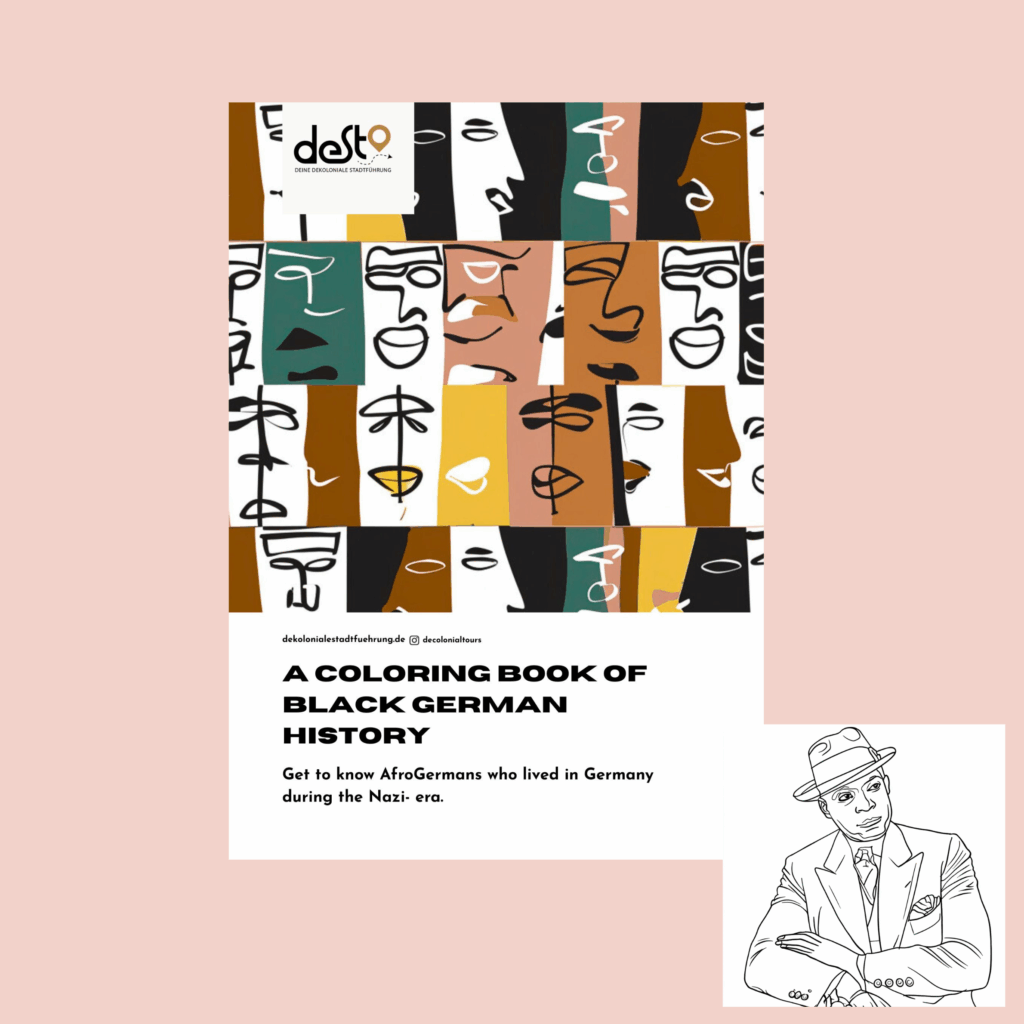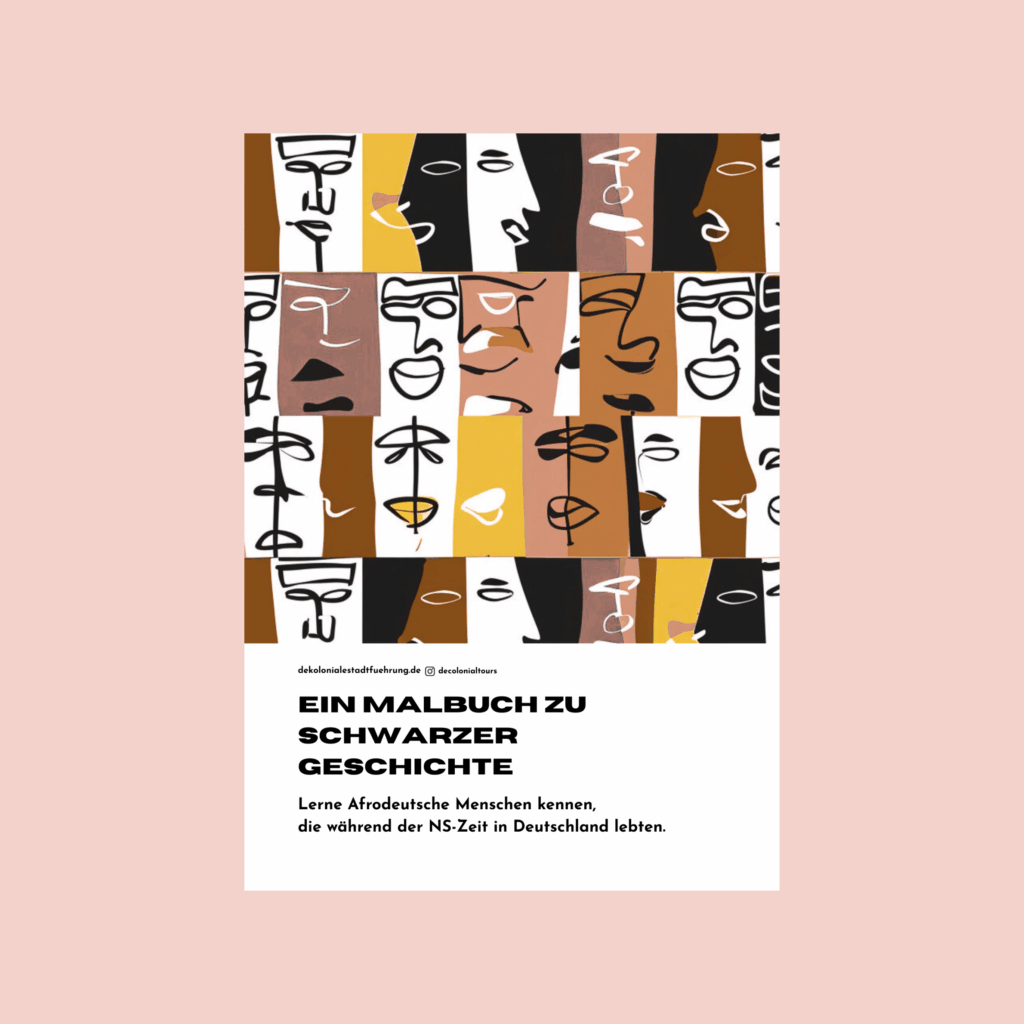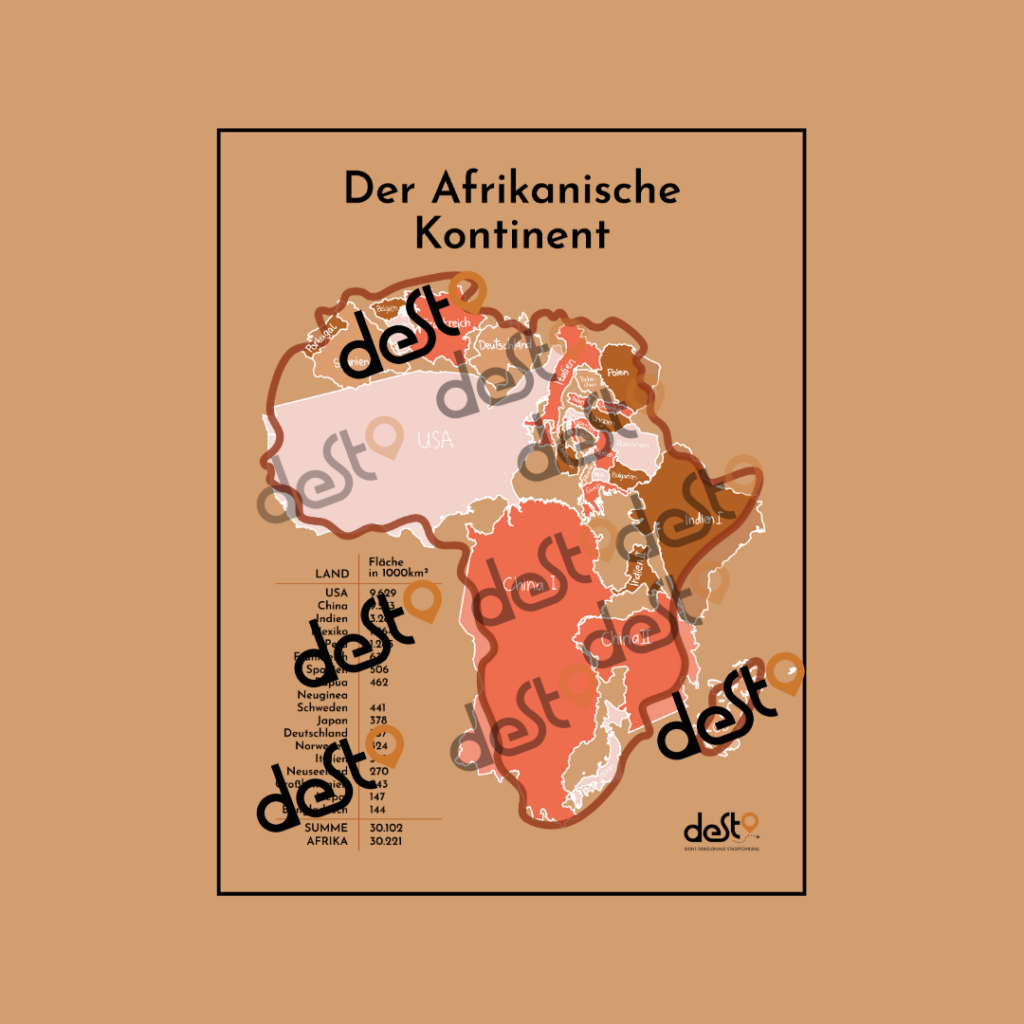Teaching and learning materials
Press articles, blog posts and book recommendations
Filter by category:
Press article
DW- Deutsche Welle
- dekolonialeStadtfuehrung
How Afro-Germans stood up to the Nazi regime
Okeri Ngutjinazo
"I want to normalize a critical approach to colonialism, and I know that many people have difficulties with this. But I am also positively surprised that there are many
Press article
GEW_Gewerkschaft, Education and Economy
- dekolonialeStadtfuehrung
Decolonization on your own doorstep
Emilia Stemmler
Stake, teepee and totem: we stand near African Street and look at pictures of a playground that represents the cultures of indigenous people in North America.
Press article
Berliner Zeitung
- dekolonialeStadtfuehrung
Memorial plaque missing in Berlin: there is a reward for information
Sinem Koyuncu
A memorial plaque at Wilhelmstraße 92 in Berlin-Mitte has commemorated the Berlin-Africa or Congo Conference of 1884 since 2005. Many people use it as a sightseeing spot.
Press article
tipBerlin
- dekolonialeStadtfuehrung
African Quarter: How city tours make colonial traces visible - and provoke some
Marit Blossey
Continuities of German colonial crimes are still visible in Berlin today. With the Decolonial City Tours, Justice Mvemba aims to provide more education and information about this chapter of history.
Magazine, Magazines
- dekolonialeStadtfuehrung
Chocolonialism: the dark history behind the popular sweet
Chocolate is deeply rooted in colonialism, slavery and exploitation. European powers established cocoa plantations in colonies, used forced labor and enslaved millions of people to satisfy the demand.
Magazine, Magazines
- dekolonialeStadtfuehrung
Should the bust of Nefertiti be returned to Egypt?
Egypt has been demanding the return of the bust of Nefertiti, which has been in Berlin since 1913, for many years. While Egypt considers the export to be illegal and is demanding its unconditional return,
Audio guide tours in Berlin
Coming soon...









